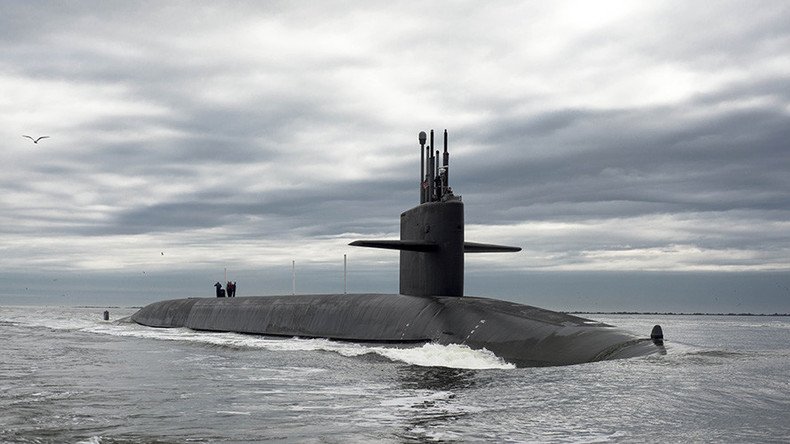Moscow ‘keeps in mind’ US readiness to use nukes, prepared for ‘countermeasures’

Russia has promised to take all necessary countermeasures to ensure its national security given recently-announced US plans to modernize its nuclear triad and hawkish statements on nuclear deterrence coming from Washington.
US Secretary of Defense Ashton Carter told American troops at Minot Air Force Base in South Dakota that the Pentagon has been seeking $108 billion over the next five years to upgrade the nation’s nuclear triad of Intercontinental Ballistic Missiles, ballistic submarines, and strategic bombers. He also announced that NATO is reviewing its “nuclear playbook” to deter potential “terrible attacks” by Russia.
“Across the Atlantic, we’re refreshing NATO’s nuclear playbook to better integrate conventional and nuclear deterrence to ensure we plan and train like we’d fight and to deter Russia from thinking it can benefit from nuclear use in a conflict with NATO, from trying to escalate to de-escalate, as some there call it,” Carter said on Monday.
NATO is reviewing ‘nuclear playbook’ to deter ‘terrible attacks’ by Russia – Pentagon chiefhttps://t.co/fZBXPBjJOJpic.twitter.com/HyXu2fvnOk
— RT America (@RT_America) September 27, 2016
Commenting on Carter’s statements on issues of nuclear deterrence, Russia’s Foreign Ministry expressed “serious concern over the mentioned readiness to use nuclear potential in case of an armed conflict with the participation of Russia with an aim to prevent our country from the possibility of using nuclear weapons to rebuff aggression.”
“Of course we will have to keep in mind the US approaches and take necessary countermeasures to ensure our national security,” the ministry warned.
The ministry said that Carter in his comments in Minot most likely referred to the Russian Military Doctrine which secures Russian right to use nuclear weapons in response to the use of nuclear and other types of weapons of mass destruction or in case of an aggression with conventional weapons that puts the very existence of the state in jeopardy.
“We emphasize – the doctrine suggests an aggression against Russia and not some ‘failed aggression’ on our part, as Carter pitched it. Such a flagrant distortion of an official Russian document means that the American minister either uses incorrect translation or is planning a dangerous game,” the statement reads.
#SecDef: America’s nuclear deterrence is the bedrock of our security, and the highest priority mission of the #DoDpic.twitter.com/Im86rPqGm6
— U.S. Dept of Defense (@DeptofDefense) September 26, 2016
According to Carter’s logic, the ministry says, in case of an attack on the Russian state, the US will be willing to use its nuclear weapons to ensure Moscow won’t strike back. Moscow hopes that Washington “understands the meaning of such statements and their possible implications for international security and stability.”
Following the Pentagon chief’s stop at Minot base, he delivered yet another speech about US nuclear weapons policy in at Kirtland Air Force Base in New Mexico on Tuesday. There the Secretary of Defense clarified that the US doctrine of nuclear deterrence has always reserved the “first strike” right.
“That’s our doctrine now, and we don’t have any intention of changing that doctrine,” Carter said responding to a question about the possibility of Russia and North Korea “brandishing” their nuclear arsenals to intimidate the US.
In both of his speeches, Carter promised to upgrade the US nuclear triad, consisting of nuclear bomb carriers, nuclear-carrying submarines, and ICBM silo launchers.
The foreign ministry said that by upgrading the country’s delivery means the US seeks to secure a “highly efficient means of a nuclear attack,” while shielding themselves with an anti-missile defense system. “Thus, the [US] military pressure on Russia strategy,... will get more sophisticated and more dangerous military-technical component.”
#SecDef: Your job is to make sure no one can doubt that the American nuclear deterrent is strong. pic.twitter.com/GakZNajvin
— U.S. Dept of Defense (@DeptofDefense) September 27, 2016
While calling Carter’s statements yet another manifestation of “Russophobia” by members of the Obama administration, the foreign ministry could not help but note “special cynicism” on behalf of the US president who received a Noble Peace prize for his alleged “pursuit of nuclear disarmament.”












